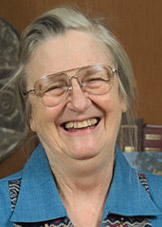America’s Nobel Prize winner in Economics a radical?
October 21, 2009Jon Brooks Comments Off Two Americans shared the Nobel Prize for Economics this year: Oliver Williamson and Elinor Ostrom. Ostrom, the first woman to win the economics prize, co-founded the Workshop in Political Theory and Policy Analysis with her husband at Indiana University.
Two Americans shared the Nobel Prize for Economics this year: Oliver Williamson and Elinor Ostrom. Ostrom, the first woman to win the economics prize, co-founded the Workshop in Political Theory and Policy Analysis with her husband at Indiana University.
One interpretation of the significance of Ostrom’s award is offered by peace studies educator Randall Amster in The Huffington Post. Titled “Why Ostrom’s Nobel is Even More Shocking Than Obama’s,” it reads:
Ostrom’s body of work is inherently radical, demonstrably anti-corporate, and implicitly socialistic. Her basic premise is that the purported “tragedy of the commons” —in which privatization of resources is viewed as the only realistic antidote to their complete exploitation —is actually an inversion of logic and reality, and that in fact the most sustainable forms of resource management are collective, cooperative, egalitarian, and decentralized in nature. Citing empirical case studies from around the world, Ostrom’s work demonstrates how people in localities on every continent have crafted and maintained elegant solutions to what might otherwise become conflict-ridden scenarios involving competition over dwindling essential resources.
In choosing to honor her, the Nobel selection committee has provided an intriguing buttress against the self-referential “only money matters” work of people like Milton Friedman, and has extended its influence into a new generation of economics premised on sustainability and community-based management.
If you want to find out more about—and interact with—the workshop, you can become a fan of its Facebook page. Or you can read one of Ostrom’s research papers, on governing natural resources sustainably in relation to property rights.
And not to ignore the other Nobel winner, Oliver E. Williamson, here’s an interview with him that was part of an ongoing UC Berkeley series of discussions with the school’s economics professors. You’ll need RealPlayer, or something that can play that type of file, to view.

